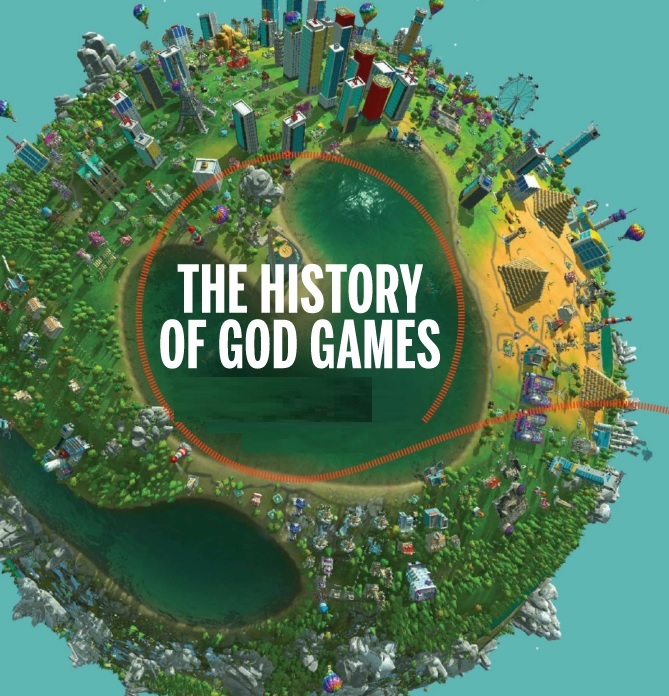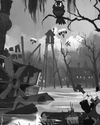
Many videogames furnish the player with godlike powers, but surprisingly few have tried to simulate the complete experience of being a god. A specific sub-genre of management sim that emerged in the late 1980s, god games lend players control not merely over a specific institution or social structure (like a theme park or a city). They give you power over reality itself, letting you shape worlds, create life and destroy both on a whim.
God games are dizzyingly ambitious, and perhaps because of this, only a sparse pantheon has ever been made. Even then, the status of many of these as god games is debatable. Many canonical god games either neglect to acknowledge your role as a god, or outright reject it, expressing the emergence of life through natural processes, rather than divine intervention.
The history of god games doesn’t start with a bang or a command. It’s more primordial, a confluence of ideas that merged and—dare I say it—evolved over decades. Bits of god games can be seen as far back as 1964’s The Sumerian Game, and 1968’s Hamurabi. Both these games cast players as Sumerian kings, tasking them with managing grain harvests in the face of random disasters. Then there’s 1983’s Utopia, a two-player game in which each player runs their own island, Utopia is credited as being one of the first games to include city-building and real-time strategy elements.
The holy spirit of god games looms large in the history of PC gaming. So take my disembodied hand, and let us wander through the (intelligently designed) history of this most divine of videogame genres.
Populous 1989
DEVELOPER Bullfrog Productions | PUBLISHER Electronic Arts
Diese Geschichte stammt aus der June 2023-Ausgabe von PC Gamer US Edition.
Starten Sie Ihre 7-tägige kostenlose Testversion von Magzter GOLD, um auf Tausende kuratierte Premium-Storys sowie über 8.000 Zeitschriften und Zeitungen zuzugreifen.
Bereits Abonnent ? Anmelden
Diese Geschichte stammt aus der June 2023-Ausgabe von PC Gamer US Edition.
Starten Sie Ihre 7-tägige kostenlose Testversion von Magzter GOLD, um auf Tausende kuratierte Premium-Storys sowie über 8.000 Zeitschriften und Zeitungen zuzugreifen.
Bereits Abonnent? Anmelden

"The War Within itself has kept me coming back most evenings too"
WORLD OF WARCRAFT remains my jailer, and I couldn't be more pleased about it

OK BUILDER
SATISFACTORY is the new titan in building and crafting games

HELL YES
DIABLO IV: VESSEL OF HATRED is a transformative expansion

MOUSE: PI FOR HIRE
This mouse wants to be more than just a gimmick

WINDBLOWN
Dead Cells dev's new roguelike has me afraid for my free time

NO MORE ROOM IN HELL 2
As the zombie horde surrounded me just moments after taking down my two remaining teammates, the writing was really on the wall. Armed with just a chef's knife, it was clear I stood no chance, but I was going down swinging, hoping for a miracle... it didn't come.

OWNED BY STEAM
VALVE cordially reminds you that your games aren't yours

CURSE OF THE AZURE BONDS
These classic games haven't aged badly, but I sure have.

DEEP FREEZE
Endure a blizzard of tough choices and rough consequences in FROSTPUNK 2

NEW HORIZONS
Building up REMNANT 2 outside the live service game grinder